Lessons from the happiest countries in the world

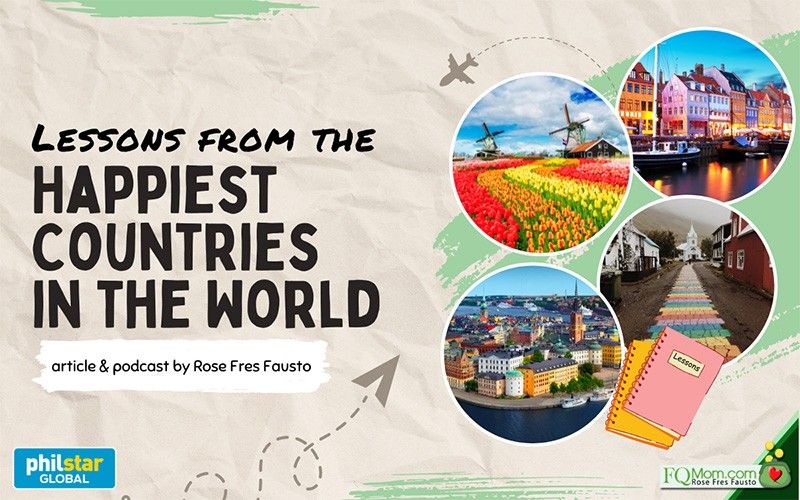
Last month, our family joined the revenge travel bandwagon! This was our family trip scheduled in 2020 that was cancelled due to COVID-19. We requested for a refund but Turkish Airlines did not grant our request but just gave us vouchers that we could use for future trips with an expiry date of April 2023. There were two main problems with this arrangement: 1) Nobody was sure when travelling would be safe again; 2) Nobody knew how much that trip would cost in the future.
Fortunately, the first problem was solved because it was safe to travel again within the expiry date. Unfortunately, the cost of doing the trip in 2023 more than doubled from our 2020 ticket prices! But as the saying goes, “All is well that ends well.” We pushed through with our trip and it was a very meaningful one.
We visited four of the happiest countries in the world: Denmark, Iceland, Sweden, Netherlands. Our two older sons and new daughter-in-law added more countries to their respective trips while our youngest stayed with us the entire time.
The world’s happiest countries
Since 2002, the World Happiness Report has been using Gallup polling data to come up with happiness ranking among countries all over the world, in order to guide government policies to focus on the citizens’ well-being. The Happiness Index has six categories namely:
- Gross Domestic Product (GDP) per capita
- Social support
- Healthy life expectancy
- Freedom to make your own life choices
- Generosity of the general population
- Perceptions of internal and external corruption levels
The latest ranking of the World Happiness Report (2021) follows:
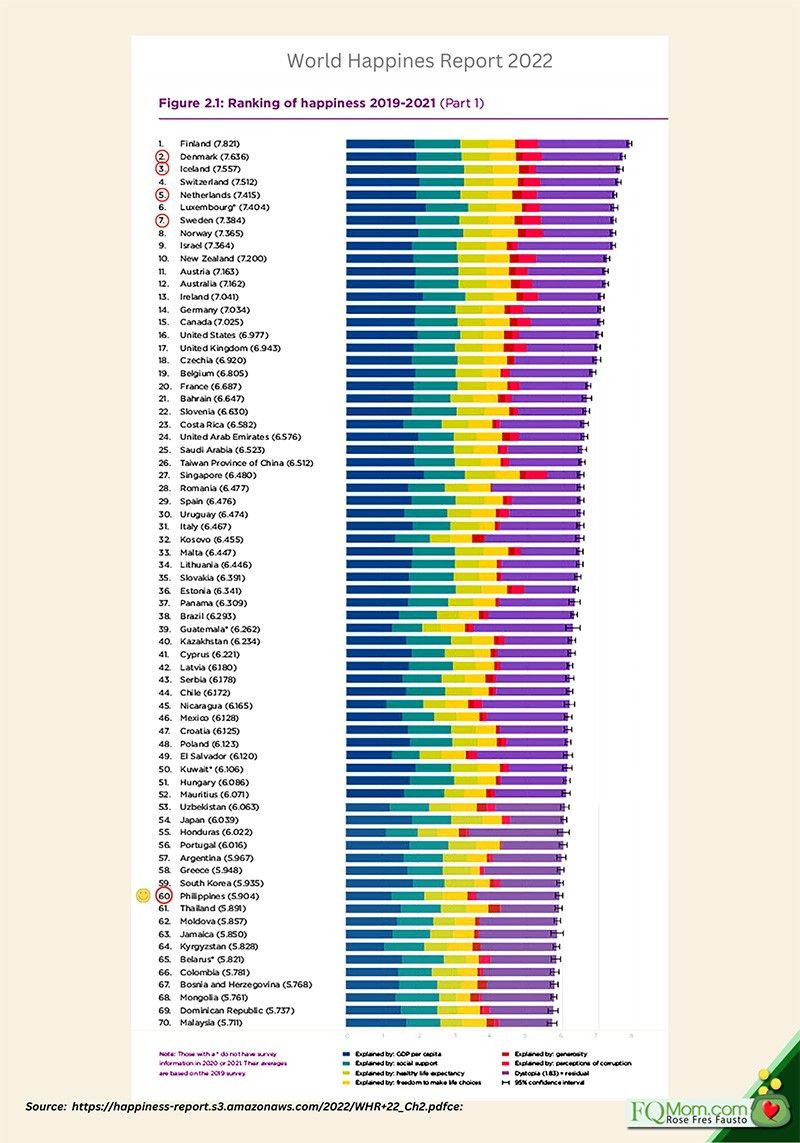
All four countries we visited are among the top 10: Denmark at number 2 spot, Iceland 3, Netherlands 5, and Sweden 7. If you’re wondering where we are in the ranking, we are at number 60/146 countries.
I have been a fan of Nordic countries ever since I read the book entitled "The Nordic Theory of Everything" and interacted with my Nordic classmates at the Harvard Business School. (By the way, Netherlands is, strictly speaking, not a Nordic country but is sometimes miscategorized as such because of its proximity to the region.)
The four countries we visited have high tax rates - around half of what they earn. Being a tourist in these countries is expensive, but if your budget can afford it, it will be worth your while. They are all very rich in culture and of course, I was curious, “Why are they the happiest in the world?”
It’s primarily because, despite their high tax rates, their respective governments work – their basic needs are provided for: hospitalization, schooling, etc. Maternity leaves can be as long as one year, and do you know that parents are gifted with a box containing all the things that they will need for the baby when they go home? In fact, the box is so designed that it can be the temporary crib of the newborn.
We can only sigh and say, “Sana ol!” but instead of waiting for that time to happen, we can take a look at the other aspects of these countries – how they live their life, their philosophies and traditions that we can apply in our own lives to make ourselves happy.
Denmark’s HYGGE
Our first stop was Copenhagen, Denmark. The more popular contributions of Denmark to the world are google maps, insulin, Hans Christian Anderson, Lego, Danish pastries, Magical Tivoli Gardens and Bakken (the oldest amusement parks, long before Walt Disney’s first), and many more.
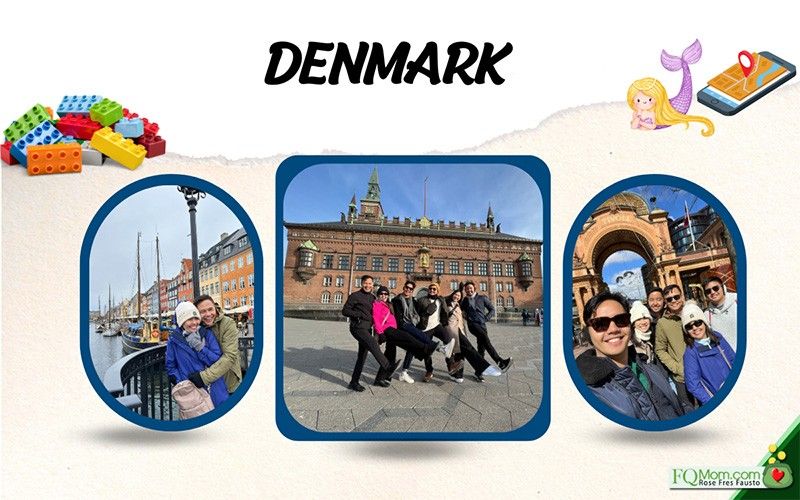
The concept of HYGGE (pronounced as “hyoo-ga”) means informal time with family or close friends. It’s the Danish feeling of coziness, peace, contentment in life. They light candles and do other things that bring joy to their everyday life.
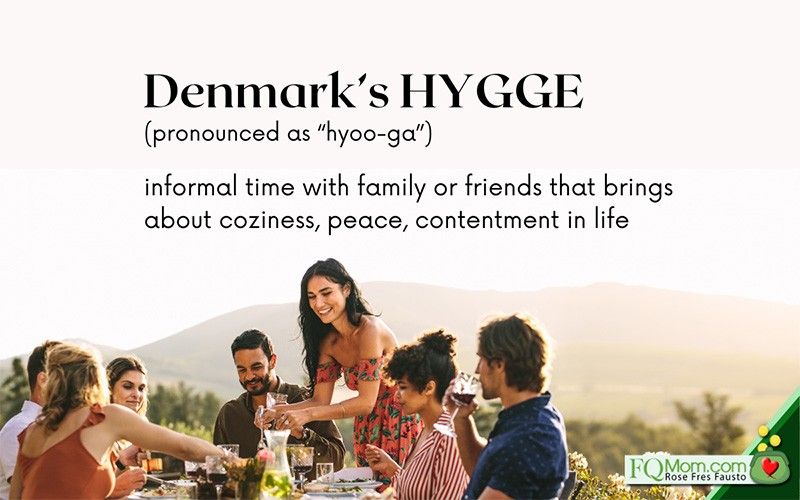
Let’s think of how we can spend time with our family and close friends. What activities do we do that bring these pockets of joy? How can we have them frequently in our life?
Iceland’s ÞETTA REDDAST
Our second stop was Reykjavik, Iceland. We did a quick visit to the famous Hallgrimskirkja (the church of Hallgrimur), bought groceries at a thrift store called Bonus, then drove to Villa Odin, a charming black house in the middle of nowhere. Iceland, with a tiny population of just over 300 thousand, is known for its rugged and contrasting landscapes such that it is called “The Land of Fire and Ice.” The famous aurora borealis proved to be elusive, but my sons, Martin and Anton, were able to take a faint glimpse of it on our first night from inside the black house.
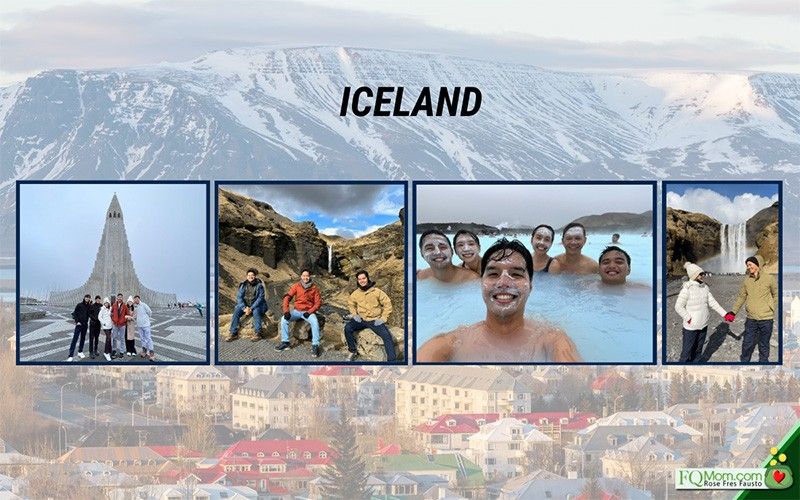
Iceland’s unofficial motto is ÞETTA REDDAST. It means “It will all work out in the end.” Life could be difficult in this barren, harsh country and over time, Icelanders have developed a mentality that no matter how big the problem is, a solution will present itself.
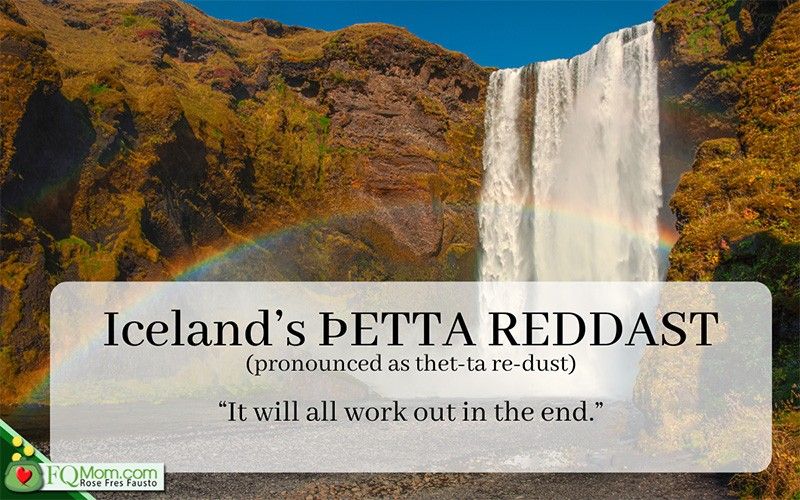
This reminds me of our own “Bahala na!” mentality. We can tweak it so it does not become fatalistic and passive. In fact, we should bring it back to its original form which is “Bathala na” (meaning “Let God”), but make sure that it is preceded by an action taken to solve the problem. Let us only say “Bathala na” after we’ve done our best and we are ready to let go of the outcome believing that God will take care of the rest.
Sweden’s LAGOM
Our third stop was Stockholm, Sweden. I enjoyed this part of the trip because it tickled my inner nerd. My husband Marvin and son Martin usually take care of our itinerary, and my only request for Sweden was to visit the Nobel Prize Museum (Click here to watch a short video of our Nobel Prize Museum visit). Of course, it was a thrill to see our very own Maria Ressa among the Nobel Laureates. Aside from this prestigious award, Sweden is also known for Ikea, H&M, Abba, smorgasbörd, Spotify, ice hotel, and many more.
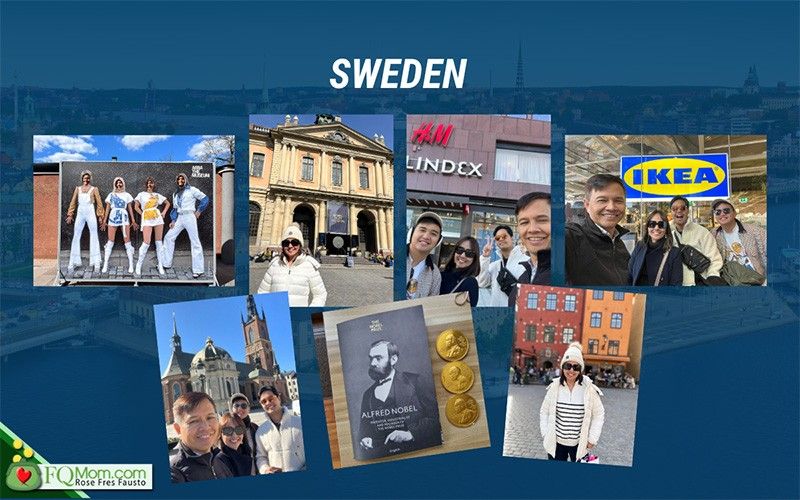
The Swedish national psyche is described in a single word – LÂGOM. It means in moderation. It is a concept of having not too much, not too little, and encourages balance. They do not look highly of you if you flaunt your wealth. Years ago, I saw a feature on Ingvar Kamprad, the founder of retail giant Ikea. He was a frugal man who flew economy class, kept the salt and pepper packets from restaurants, and encouraged his employees to use both sides of the paper and practice other cost control measures in the company. This was not just true for the Ikea founder but also for other successful Swedish business owners who remain fairly simple in their lifestyle.
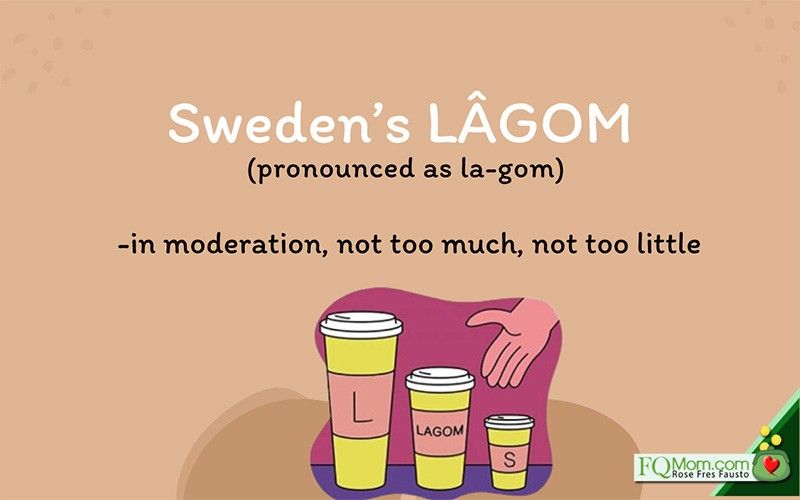
Everyone will benefit to live this lifestyle of lâgom. It is a sure way to help us prepare better for a decent retirement. Our simplicity and frugality will not only allow us to save and invest more for the future, but will also train us not to want too much during our retirement years when our earning capacity would have declined.
Netherland’s…
Our fourth stop was Amsterdam, Netherlands. And what is Amsterdam known for? Do I hear you say, “legalized use of cannabis?” In Amsterdam, you have to be careful when you ask for directions to go to a coffee shop. Here are the terms that you should understand.
Café is the equivalent of a full bar and it sells liquor, cocktails, wine, and beer.
Koffiehuis (Coffee House) is where you can have coffee, pastries, and light meals.
Coffee Shop (usually one-word Coffeeshop) is where you can legally buy and do soft drugs – cakes, brownies infused with cannabis, smoke weed, etc.
Although having legalized the use of cannabis might have added to their happiness, there are other wonderful things Netherlands is known for - beers like Heineken, cheese, wind mills, canals, Van Gogh, Rembrandt, tulips, and many more. Incidentally, the first recorded asset bubble happened in Amsterdam – it was the tulip mania from 1634 – 1637 when prices of the bulb skyrocketed to amounts equivalent to the price of a mansion!
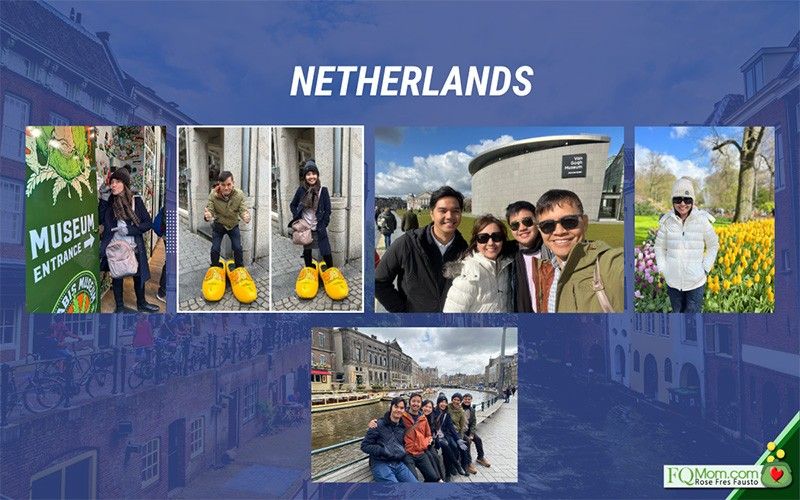
Now let’s go to the life philosophy that I admire their country for.
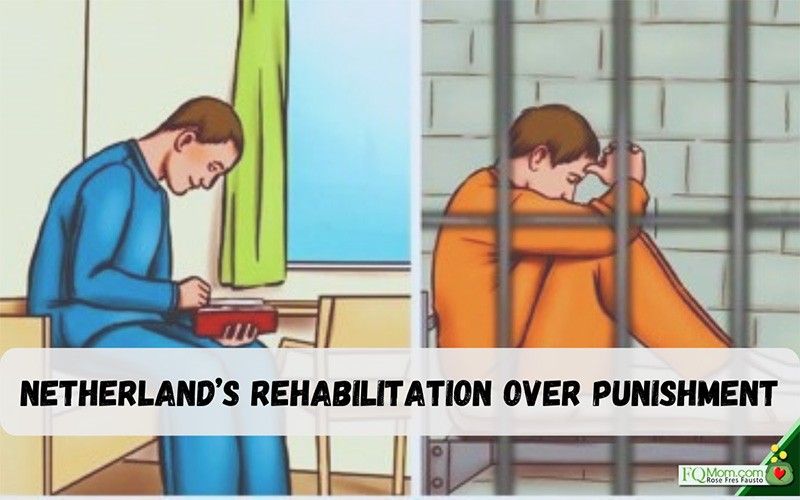
Netherland’s rehabilitation over punishment
The Dutch justice system generally favors rehabilitation over punishment. Because of this, they have considerably less crime re-offenders compared to other countries. This system has proven to be successful such that over 20 prisons have closed in Netherlands since 2013 due to the dwindling number of convicts to occupy them.
We may not be able to see this implemented in our own justice system any time soon, but we can apply the philosophy to our relationships with people who did us wrong, especially those that we cannot cut off from our circle.
Happiness is social in nature.
Even if we can be happy in our own shell, we are social beings. Because of this, we can never be truly happy if everything is contained in our own little world. If you notice, all the concepts above involve not just the self but others. Their happiness also comes from seeing people around them to be okay. In our country where wealth inequality is high, let us try to help others, especially those within our circle of influence, improve their financial situation. If you’re an employer or head of the family, make sure everyone is preparing well for their future. Maybe if we all do our part, we can move up our Happiness Index a few notches above our existing ranking of number 60/146.
In the end, we are all better off when everyone is better off.
ANNOUNCEMENTS
1. Join us at The Little Vintage Shop sale on June 3 to 4, 2023.

2. If you haven’t taken the FQ Test, take it now. Click here.
3. If you want the help of FQ Mom in taking the test, click here.



















